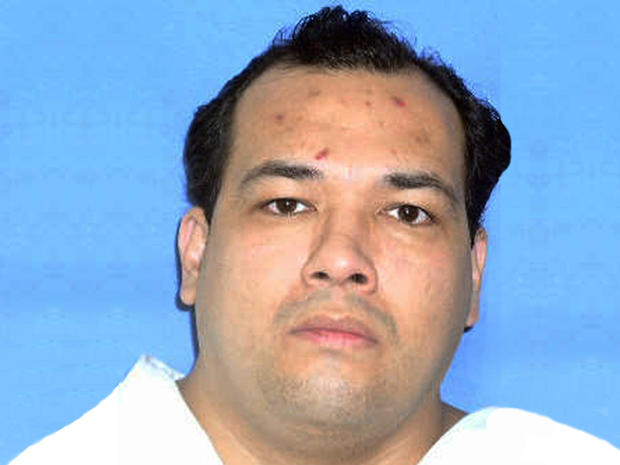Impending Humberto Leal execution draws in Rick Perry, Obama
Updated 6:21 p.m. Eastern Time
The clock is ticking for Mexican national Humberto Leal, who is scheduled to be executed around 6 p.m. Central time for the 1994 kidnap, rape and murder of 16-year-old Adria Sauceda.
Leal's fate has implications that go beyond simply the alleged killer and the families and friends of those involved in the case. It could also have a significant impact on Americans arrested abroad, foreign nationals arrested on American soil, and perceptions of Texas Gov. Rick Perry, who is considering a run for the Republican presidential nomination.
On the night she was killed, Sauceda was under the influence of alcohol and cocaine in San Antonio when she was gang raped by a group of men at a party, according to prosecutors. They say Leal showed up, said he was a friend of Sauceda's parents, and offered to take the teenager home. Her brutalized body was later found, leading to Leal's arrest and prosecution.
Leal says Sauceda's death was accidental, following a struggle by the side of the road; he denies raping her, and there is a lack of DNA evidence to show that he did. Without the rape conviction, Leal would not have been sentence to death.
The case has made national headlines because Leal, who was moved from Mexico to the United States as a young child, is among more than 50 Mexican nationals on death row who were apparently never informed that they could reach out to the Mexican government for legal help - in violation of international law.
"The Mexican government says that Leal was provided lousy counsel by the Texas public defender's office, and that had it know of the charges, the Mexican government would have provided Leal top-flight lawyers and experts, which it believes would have made a big difference in this death penalty case," reports NPR's Wade Goodwyn.
Mexico has pushed hard to stop Leal's execution, and the Obama administration last week asked the Supreme Court to delay it. The administration wants to give Congress time to consider and pass legislation allowing federal courts to review death penalty cases involving foreign nationals to see if the involvement of their consulate might have made a difference.
UPDATE: The Supreme Court has refused to stay Leal's execution in a 5-4 vote.
Part of the administration's concern rests in the possible implication for U.S. citizens arrested abroad - who could potentially point to the treatment of Leal in denying Americans access to their government. While the U.S. government has signed the Vienna convention guaranteeing those arrested on foreign soil the right to consult with their government, Congress has not legally implemented it.
Without the Supreme Court stepping in, the only person who can keep Leal from being executed this evening is Texas Gov. Rick Perry, who has the power to delay the execution for 30 days. (He could only commute it with the backing of the Texas Board of Pardons and Paroles.) Perry, who has in the past shown little interest in intervening in death penalty cases, seems unlikely to do so; his aides say international law has no jurisdiction in Texas.
"If you commit the most heinous of crimes in Texas, you can expect to face the ultimate penalty under our laws, as in this case, where Leal was convicted of raping and bludgeoning a 16-year-old girl to death," said Perry spokesperson Katherine Cesinger. As Cesinger notes, the Supreme Court ruled in a similar case in 2008 that international law was not binding, leading to the execution of another Mexican national.
Giving Leal a reprieve would carry political risk for Perry, who does not want to be seen as sympathetic to a convicted killer. Yet not doing so casts him as unwilling to consider the concerns of the international community - or the treatment of Americans arrested abroad.
In 2005, as The Atlantic notes, then-President George W. Bush ordered states to comply with international law and give consular access to foreign nationals. Perry, who succeeded Bush in the Texas governor's office, was the only governor to mandate his state not comply.
